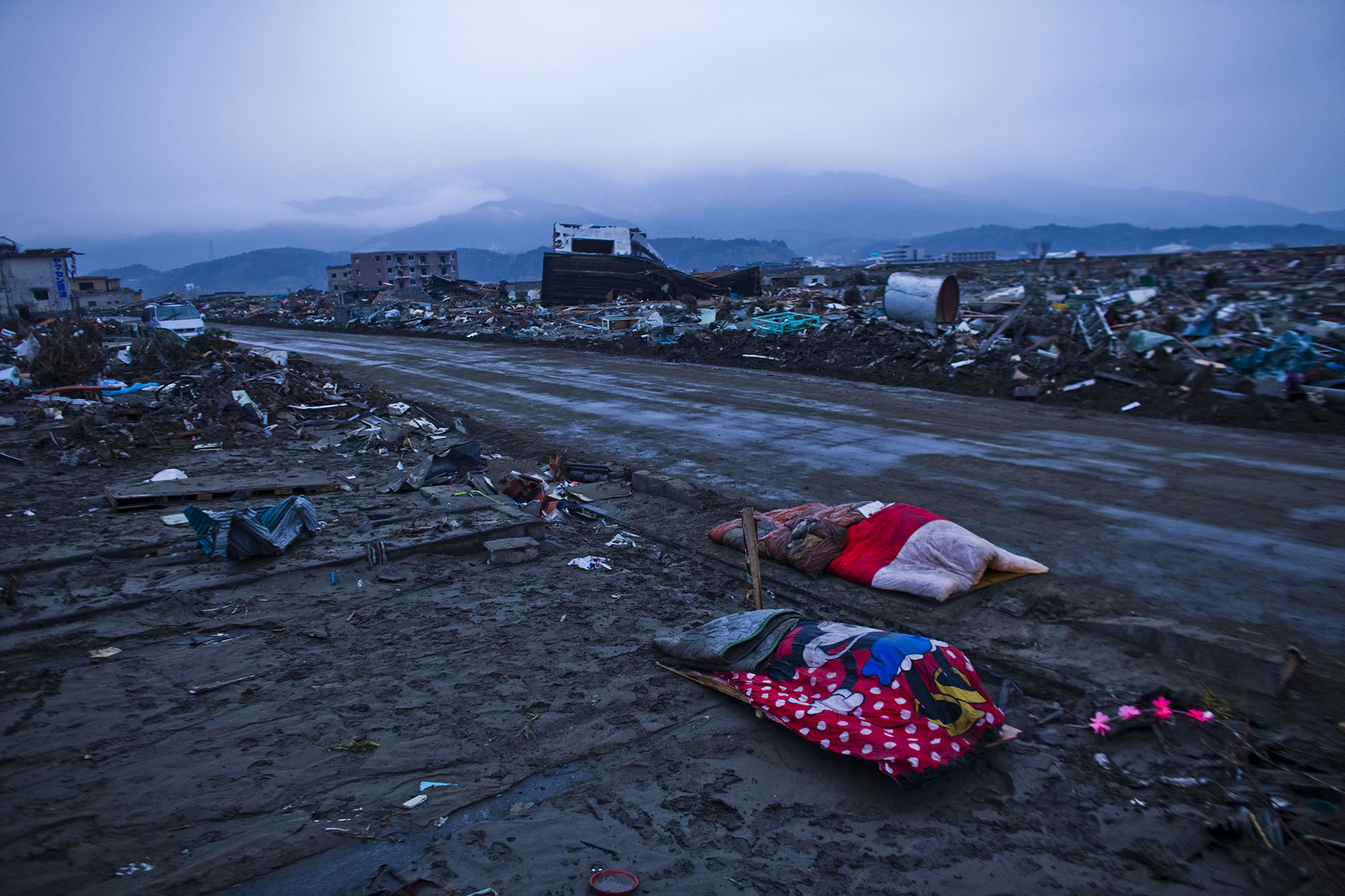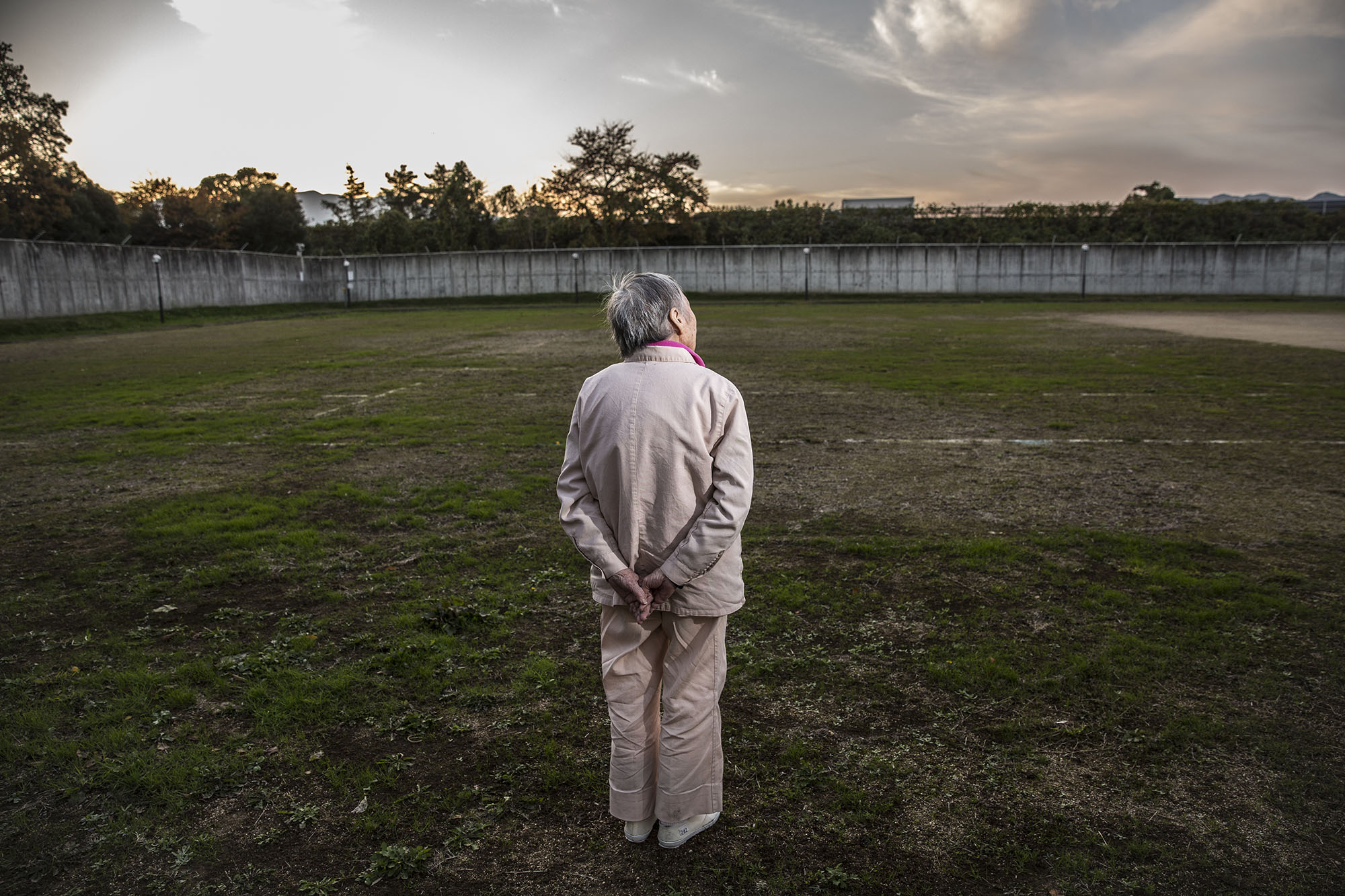
Attendants stand in line after their duty to serve tea to delegates at the Great Hall of the People during the Chinese People's Political Consultative Conference (CPPCC), plenary session for NPC, in Beijing, China.
Shiho Fukada is a Japanese visual journalist who pursues stories both in photography and video. Currently based in Tokyo, Japan, she has extensive experience in shooting and reporting on stories nationally and internationally. She started her career in photojournalism after working in the fashion and advertising industry in New York. After working in the U.S. for nearly a decade, she brought her attention back to Asia and moved to Beijing, contributing regularly to major news organizations. Her work covering the 2008 Sichuan earthquake in China received the Grand Prize of Photo of the Year from Editor & Publisher Magazine and was recognized by UNICEF Photo of the Year. Her coverage of the Japan earthquake and tsunami of 2011 received The Visa d’or – Daily Press Award at Visa pour l’Image Perpignan and The Society of Publishers in Asia Awards/News photography award. Moving into multi-media journalism, her work “Japan’s Disposable Workers,” depicting Japanese workers’ plight during the decades of economic stagnation, received a World Press Photo’s multimedia award and was nominated for an Emmy (2015). Her photographic reporting on Japanese female seniors in incarceration received The Feature Photography Award by the Overseas Press Club of America (2019). She has expanded her visual storytelling to filmmaking, and her short documentary films have been shown at various film festivals and recognized by the Webby Awards and Telly Awards (2020). She is a recipient of the Alicia Patterson Fellowship and the Howard G. Buffett Fund for Women Journalists from the International Women’s Media Foundation.
Quick links to POY Asia 2021 Judges: Khalil Hamra / Shiho Fukada / Anshika Varma / Bryan van der Beek / Suejin Shin / Jiro Ose / Rena Effendi / Abir Abdullah / Nariman Ayman El-Mofty / Wonsuk Choi

Li Yaohua, 5, shows off headstand at Limb and Maim Center in Chengdu, Sichuan in China.
"A good picture tells a story. It makes you feel something and touches your heart."
Shiho Fukada

Family and friends grieve over their children, who were killed by collapse of Juyuan Middle School caused by earthquake in Juyuan City, Dujiangyan county, Sichuan province in China.

Rubel, 16, works at aluminum factory in Dhaka, Bangladesh. He works 8 hours a day 6 days a week and earns 1400tks (US$20) a month (70tks=US1D) He wishes to be a teacher when he grows up. Poverty pushes estimated 6 to 7 million children to work in Bangladesh, comprising one-fifth of the country’s labor force. There are some 40 industries in Bangladesh using child labor, often under hazardous conditions and with little regard for health and safety. Most perform their duties for little or no pay without access to education leaving them trapped in low-skilled, low-paying jobs that further binds them in a cycle of poverty.

Two dead bodies are left covered by blanket in rubbles of Rikuzentakata, Iwate prefecture, Japan, March 15, 2011. In this town of 23,000, more than one in 10 people is either dead or has been missing since the earthquake.


